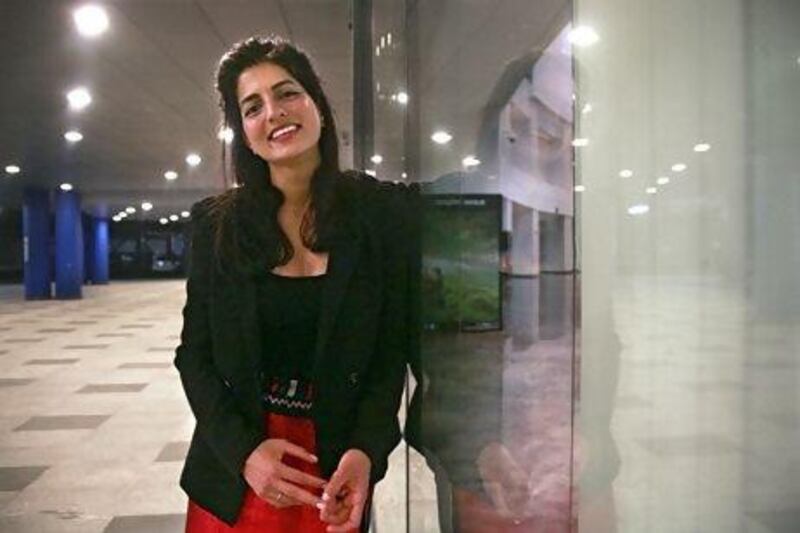Akanksha Hazari is the founder and chief executive of m. Paani. The social enterprise, based in Mumbai, won the 2011 Hult Prize. Initiated by the former US president Bill Clinton three years ago, the competition is open to college and university students. Ms Hazari, 30, was in Dubai last week to participate in the UAE's First Social Enterprise Week, organised by the social enterprise Consult and Coach for a Cause with Community Cinema, the branding agency Brand Syrup and the Hult Prize itself.
How does m. Paani provide development rewards?
Every time a customer tops up his or her mobile phone, he gets rewarded by a certain number of points. These can then be redeemed to get access to things like water purifiers through our business partners. For instance, we have tied up with non-governmental organisation Pratham to provide English education.
How many people are benefiting?
We are currently doing a pilot project in Mumbai and have restricted the number to 1,000 people. They live in an edge of [the slum] Dharavi and have an average monthly income of 4,000 (Dh269] to 12,000 rupees. One of the criteria for the pilot group was to have a history of successful community-led initiative. The [municipality] provides free public toilets but this community turned the toilets in their area into facilities with a membership structure. The community introduced annual, monthly and one-time fees to maintain and clean the toilets themselves
How was m. Paani born?
In 2009, I spent a year travelling across rural India after working for three years in Booz and Company in Washington, DC, and Dubai. I spent time in farms in Arunachal Pradesh, Uttarakhand, Maharashtra, Himachal Pradesh, Karnataka and Madhya Pradesh. I saw we have very high mobile penetration though people have no electricity or tap water. I was disheartened to see companies can deliver phones but government cannot deliver basic services. Distribution channels in India are amazing. And that is when the idea came together. I came to know about the Hult Prize when I was studying business administration in Cambridge University from 2010 to 2011.
What are your funding sources?
The Hult Prize is the major source of funding. The prize money is US$1 million (Dh3.67m), but in 2011 they had different rules and though we did not get the complete amount, we got a significant amount. We also raised funding through UnLtd India, which funds social enterprises in India. We are their number one investee and they give up to $10,000 per year to a single investee.
How and when might you scale up?
We have tied up with a major mobile phone operator in India and by the end of this year the goal is to end the pilot project and then roll out nationally. We have tied up with Etisalat for Africa, though we do not know which country we will start with. We will launch a pilot project in Africa in three years.
How would you make money?
We would charge our telecom partners for designing and implementing the loyalty programme.





